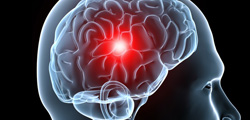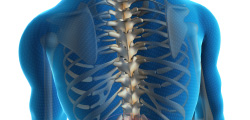Spinal Cord Injury (SCI)
Spinal cord injury can occur for many different reasons. It can be due to illness e.g. tumors or a traumatic event e.g. breaking your neck. Both can result in the spinal cord being severed either completely (complete injury) or partially (incomplete injury). This results in loss of feeling and movement below the area of damage. If the damage is in the neck this will affect the arms, legs and trunk (tetraplegia/ quadriplegia), or if the damage is in the middle or lower back then the legs and pelvis (paraplegia) will be affected. However, one side of the body can be more affected than the other and with incomplete injuries part of the spinal cord will still function and this can give mixed symptoms.
As each injury is different no two people have the same symptoms.
Treatment is tailored to your needs but could be aimed at:
Complete injuries
- Reducing secondary problems occurring e.g. muscle shortening and loss of movement in joints.
- Maintaining the movement that exists.
- Strengthening weak muscles and discouraging altered movement strategies from occurring.
- Reducing muscle spasms.
- Implementing a standing programme.
- Postural re-education and positioning advise.
- Promoting independence.
- Maintaining good respiratory function.
- Teaching of family/carers on moving and handling techniques and stretches.
- Improving quality of life.
Incomplete injuries
- Re-educating normal movement and preventing compensatory strategies from developing.
- Strengthening weak muscles through specific exercises and task specific practice.
- Preventing muscle tightness and joint stiffness.
- Reducing hypersensitivity pain through handling techniques.
- Implementing standing practice into daily life.
- Promoting independence and progressing functional ability.
- Teaching of stretches to family and carers.
Recovery from spinal cord injury can take many years. After the initial in-patient rehabilitation period you are discharged home. Provision for ongoing physiotherapy is often poor and the person can find it difficult to adjust. Neurological physiotherapists understand the client's problems and the impact this has on their everyday life. It can often feel as though the person knows more about their condition then other health professionals that they come into contact with. This can be very lonely. Neurological physiotherapy helps to motivate clients to keep working hard while supporting you and understanding the difficulty's you face.
To contact us for an appointment or regarding any queries please call 07816 768456 or email info@dawnburrow-neurologicalphysiotherapyservice.co.uk



Services
What we treat
- Stroke (CVA)
- Spinal Cord Injury (SCI)
- Parkinson’s disease (PD)
- Multiple Sclerosis (MS)
- Traumatic Brain Injury (TBI)
- Vestibular Problems
- Balance Problems
- Bell’s Palsy
- Elderly rehabilitation and falls prevention
Areas we cover
We cover the following locations:Witney, Carterton, Bampton, Curbridge, Ducklington, North Leigh, South Leigh, Clanfield, Burford, Kidlington, Woodstock, Standlake, Long Hanborough, Bladon, Hailey, Leafield, Finstock, Stonesfield, Shipton under Wychwood, Eynsham, Cassington, Farmoor, Cumnor, Shilton, Minster Lovell, Charlbury, Freeland, OX28, OX29, OX18
Please contact us to find out if we cover your area.




